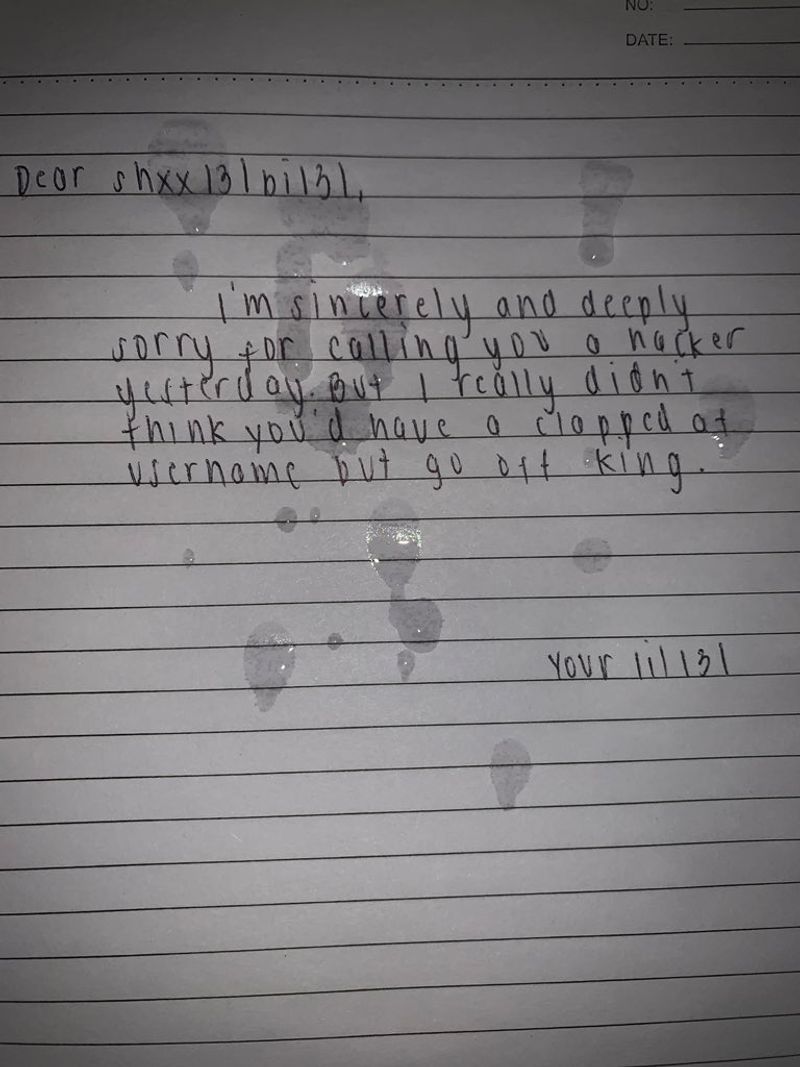In an era when discipline meant more than just a timeout, parents wielded a unique arsenal of strategies to keep their kids in check.
These methods were not only effective but also memorable, leaving lasting impressions that many still recall with a mix of nostalgia and respect.
Here, we explore 15 discipline strategies from a time when a single look could make a child sit up straight and listen.
1. The Look
It was the ultimate weapon in a parent’s disciplinary toolkit—the look. With just one piercing gaze, a child knew instantly they had crossed the line.
This silent form of communication required no words, only the understanding that behavior needed to change, and fast. Moms and dads mastered it, perfecting the angle and intensity over time.
For kids, it was a universal signal of impending consequences if they didn’t shape up immediately. It spoke volumes without uttering a single sound, proving the power of non-verbal communication in parenting.
2. “Because I Said So”
The phrase that ended all arguments—”Because I said so.” These words, spoken with authority, signaled the end of any debate. It was a parental trump card, leaving no room for negotiation or questioning.
To kids, it meant that the discussion was over, and compliance was the only option. Parents wielded this phrase when explanations were unnecessary or when they needed to assert their authority swiftly.
It was a reminder that sometimes, grown-up decisions didn’t require justification, just respect and obedience.
3. Public Shaming in Front of Relatives
Acting up at family gatherings was a surefire way to invite public shaming, a tactic both dreaded and effective. When misbehavior erupted at Grandma’s, parents didn’t hesitate to call it out in front of everyone.
This approach swiftly nipped unruly actions in the bud, leveraging the power of social embarrassment. Kids learned quickly that their antics wouldn’t just earn them a scolding but also become a topic of family lore.
Although harsh, it was a lesson in social accountability and respect for family norms.
4. Threatening to “Turn This Car Around”
Few threats held more weight than the infamous “turn this car around,” brandished during long road trips. It was a dire warning no child wanted to hear, especially when vacation plans were in jeopardy.
The mere suggestion that the journey could end before reaching the destination was enough to quell backseat squabbles. Parents didn’t have to make good on it often, as the thought alone was a powerful deterrent.
It illustrated the importance of cooperation and the consequences of disruptive behavior on shared experiences.
5. Sending You to Get the Belt (or Slipper)
The dreaded command to fetch the belt or slipper was enough to instill fear and compliance in a child. In many households, this wasn’t just a threat but a ritual that signaled serious consequences were in order.
The act of retrieving the instrument of discipline was part of the punishment, amplifying the anticipation and fear.
In retrospect, it was a method that underscored the severity of certain actions, ensuring kids understood the gravity of their mistakes. It was a lesson in accountability and the tangible consequences of one’s choices.
6. Embarrassing You in Front of Friends
Being embarrassed in front of friends was a fate worse than most punishments. Parents knew exactly how to leverage this social pressure to enforce discipline.
Yelling a child’s full name from the porch or forcing an early end to a sleepover were effective, albeit mortifying, tactics. These moments taught kids to consider their actions carefully, knowing their social standing could be at stake.
It was a reminder that public behavior reflected not just on them but also on their family, enforcing a sense of communal responsibility.
7. The Silent Treatment
There was a weighty significance to the silent treatment, a strategy where no words were spoken, yet the message was loud and clear. Parents wielded silence with precision, using it to convey disappointment and the need for reflection.
For children, silence was a potent signal that something was wrong. It prompted introspection, as the absence of dialogue was more unsettling than any lecture.
This approach emphasized the importance of understanding and correcting one’s behavior before things returned to normal, marking a path to reconciliation through self-awareness.
8. Making You Apologize in Person
In an age before digital apologies, making amends meant facing the person you wronged. Parents insisted on in-person apologies, teaching kids the value of sincerity and directness.
This practice encouraged the development of empathy and accountability, as children had to confront the impact of their actions.
It wasn’t always easy, but the lessons learned from looking someone in the eye and saying “I’m sorry” were profound. It fostered a sense of responsibility, maturity, and the importance of genuine, heartfelt apologies.
9. Early Bedtime (Even If the Sun Was Still Out)
The injustice of being sent to bed early, especially while the sun still graced the sky, was a punishment that children loathed. This tactic was particularly effective in summer when playtime seemed to stretch on forever.
An early bedtime was a statement: your actions have consequences. It served as a reminder that privileges extended only as far as behavior allowed.
For kids, the sound of laughter and play outside was a constant reminder of what they were missing, driving home the importance of good behavior for future freedoms.
10. Writing Lines or Apology Letters
Writing lines or apology letters was a punishment that combined discipline with reflection. Kids found themselves repeating phrases or crafting notes that conveyed remorse and understanding of their missteps.
This method was not just about repetition but about absorbing the lesson through effort and time. It was a creative approach to discipline, encouraging introspection and acknowledgment of wrongdoing.
As monotonous as it seemed, the act of writing imprinted the lesson in a way that was hard to forget, fostering personal growth and accountability.
11. Extra Chores as Punishment
When words failed, extra chores succeeded. Tasking children with household duties was a dual lesson in discipline and responsibility. It taught them that actions have consequences, often in the form of manual labor.
Mopping floors or washing dishes wasn’t just about punishment; it was about instilling a work ethic. Parents used this strategy to reinforce the idea that contributing to the household was both a duty and a privilege.
It was a hands-on reminder that privileges come with responsibilities, a lesson that extended beyond childhood.
12. Canceling Fun Plans on the Spot
The sudden cancellation of fun plans was a tactic that left a lasting impact. It was immediate, definitive, and undeniably effective. With just a few words, exciting outings or parties vanished, replaced by the void of missed opportunities.
This approach was both a shock and a wake-up call, illustrating the significance of behavior in maintaining privileges. For children, the loss of anticipated joy was a powerful motivator for future compliance.
It was a reminder that actions have immediate and sometimes irreversible consequences in the world of growing up.
13. Taking Away Your Favorite Toy or TV Privileges
Few punishments were as impactful as the removal of a favorite toy or the dreaded TV ban. These were privileges that children valued deeply, making their loss particularly effective.
The absence of Saturday morning cartoons or a beloved action figure served as a constant reminder of the importance of good behavior. This strategy highlighted the concept of earning privileges through actions.
It was a lesson in appreciation, teaching kids to value what they had and recognize the behaviors needed to maintain those cherished rights.
14. Calling Dad at Work
The rare and dreaded call to Dad at work was a clear sign that things had escalated beyond immediate repair. This tactic was reserved for serious offenses, where Mom’s patience had reached its limit.
Hearing that Dad had been informed of a misdeed was enough to instill a sense of impending consequence. It was a message that misbehavior had crossed a line, warranting serious attention.
This approach emphasized the importance of respecting parental authority and maintaining harmony within the family dynamic.
15. Guilt Trips and Classic One-Liners
Parents of yesteryear were masters of the guilt trip, wielding classic one-liners that stuck with kids long after the words were spoken. Phrases like “After all I’ve done for you…” or “When I was your age…” were delivered with heartfelt sincerity.
These verbal cues were laced with emotional weight, prompting children to reflect on their actions and their impact on family dynamics.
It was a powerful tool for instilling empathy and appreciation for parental efforts. While subtle, the lesson was clear: respect, gratitude, and family bonds are paramount.















